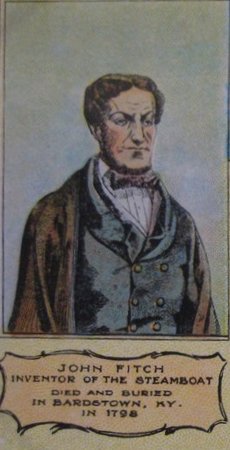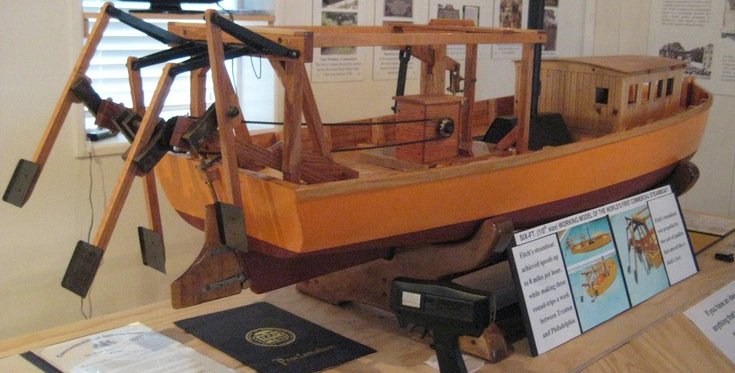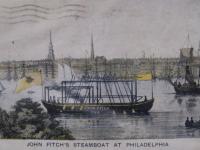Did John Fitch start the transportation revolution in Warminster, Bucks County, Pennsylvania? The John Fitch Steamboat Museum argues that the answer to this question is a resounding "Yes!" After all, it was in Warminster in 1785 that Fitch invented the first American steam engine feasible for propelling a boat. Several years later, he ran the world's first commercial steamboat service in 1790, along the Delaware River between Philadelphia and Trenton. (Although, even free beer, rum, and sausages could not entice enough customers to keep the operation viable.)
The John Fitch Steamboat Museum was created by members of the Craven Hall Historical Society in Warminster to tell John Fitch's story and attempt to reclaim his legacy as the inventor of the steamboat. Robert Fulton, whose commercial steamboat service operated years later but much more successfully than Fitch's, is given greater credit amongst the general population for his achievements. The John Fitch Steamboat Museum puts Fitch center-stage.
Fitch was born in Connecticut in 1743. In his youth we worked as a clockmaker, farmer, and silversmith before joining the New Jersey militia as a gunsmith during the American Revolution. After the war Fitch was principally engaged in land surveying and sales in several states, but without much success. Another unsuccessful commerical venture, transporting flour from Pittsburgh to New Orleans, resulted in his capture by a Native American tribe! When freed in 1782, Fitch settled in Warminster.
In 1785, on his four-mile walk home from Neshaminy Meeting, John Fitch had his great breakthrough. Fitch suffered from rheumatism and fantasized about a steam-powered riding chair that might ease his commute. The steam-power riding chair quickly transformed in his imagination into a steam-powered boat, and Fitch got right to work. Less than six months after coming up with his initial idea, Fitch presented a model steamboat to the American Philosophical Society (the de facto patent office in the years before the United States passed its first patent law in 1790). Fitch discussed his plans with many potential investors, including Benjamin Franklin and George Washington, but was unable to secure investment in his steamboat. Even after Fitch built his first steamboat in 1787 and took Constitutional Convention delegates on a boat ride on the Delaware, support was not forthcoming.

Finally, Fitch was able to scrape together the funds to launch the world's first commercial steamboat service in 1790. He offered three round-trips a week between Philadelphia, Bristol and Trenton. Unfortunately, Fitch never found the customer base he hoped for, even when he offered the aforementioned free refreshments on board. Fitch's financing fell through.
Later in 1790, after the United States' first patent act was passed, Fitch was granted a patent. Because it was one of four patents for steamboats distributed at the time, however, it was not much use to him. Fitch died in penury in Bardstown, Kentucky in 1798.
To learn more of Fitch's incredible story--and to see a moving electric model of Fitch's steamboat--be sure to visit the John Fitch Steamboat Museum. Next door, the Craven Hall Historical Society has accumulated a convenient collection of research materials about Fitch to satisfy any lingering curiosity, along with a variety of original 18th- to 20th-century local history documents.


